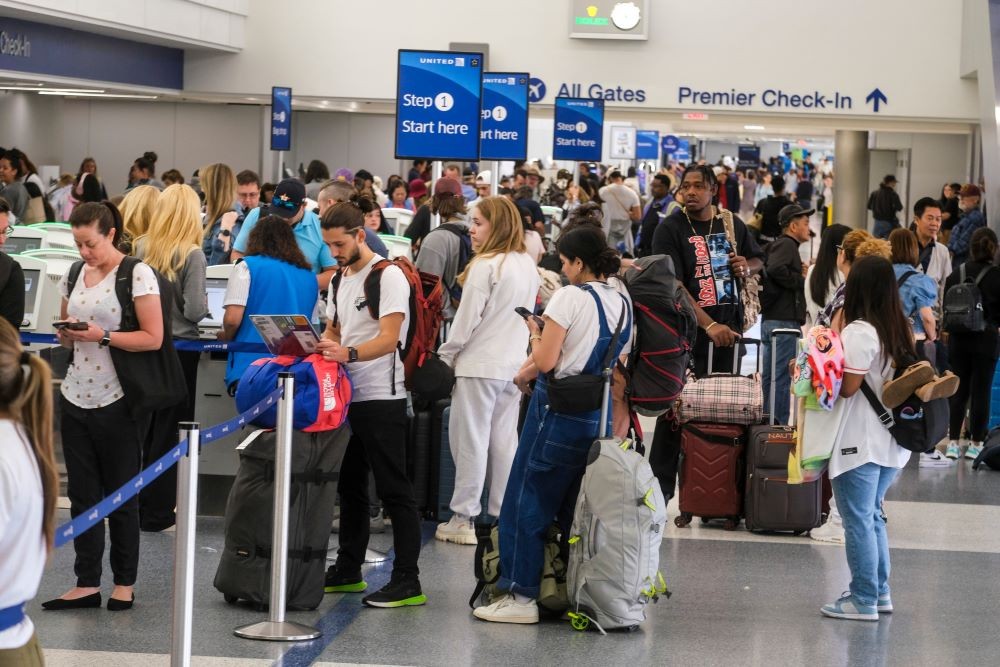
Meeting and event planners could reasonably claim force majeure if they needed to cancel a meeting or mitigate attrition damages in the wake of the global CrowdStrike outage that stranded or delayed hundreds of thousands of air travelers July 19, in addition to major disruptions to healthcare, financial and other industries.
More than 34,000 flights were delayed worldwide, with more than 7,000 flights originating or ending in the U.S. delayed, according to a report in The Washington Post.
[Free Webinar With Joshua Grimes: Critical Contract Clauses]
“Force majeure clauses, of course, are often different, but most of them have a curtailment of transportation clause that might say that if there’s a curtailment or cessation of transportation that might affect x percentage of attendees, or that impact travel to the meeting location and/or prevent a material number of attendees from arriving on the first day of the event, if your meeting is starting today or even tomorrow, I believe it’s a clear force majeure [situation],” said leading meetings and events industry attorney Joshua Grimes, principal of Grimes Law Office and frequent representative of organizations that plan meetings.
[More Legal Content Featuring Joshua Grimes]
“To me, it’s not reasonable to expect attendees to sit at the airport, wondering if the flight is going to take off, and even tomorrow, because even if it got fixed an hour from now, the flights are so backed up between people who want to reschedule or flight crews that have to be on airplanes have to be repositioned, I think it’s clear that it would be a force majeure, because it’s a curtailment of transportation," he added. “I would say is that this is as clear of a cessation of transportation case since 9/11, when all the aircraft were grounded for two or three days."
Grimes said the issue becomes less certain if attendees have to arrive on the Sunday or Monday after the situation was resolved.
Grimes cited the July 12 United States Court of Appeals decision in the Avantax Wealth Management, Inc. v. Marriott Hotel Services case bolstered the force majeure argument because it determined that if it was reasonable to cancel at the time the decision to cancel was made, force majeure would be in effect.
[Related: Is Air Travel Stress Preventing Full Business Travel Recovery?]
Contract Clause Recommendations
Grimes recommends meeting and event planners do the following:
- Reexamine their force majeure clauses in the event an upcoming meeting may be affected by the outage, to see what rights they may have to cancel the meeting or reduce its size in view of the impact on attendees' ability to travel.
- Rework their clauses for future meeting contracts to ensure that a situation such as this widespread outage would allow the group to react to a similar situation that severely impacts a meeting's success.
[Related: An Essential Contract Checklist for Meeting Planners]
“If you’re a planner and you can demonstrate that you could not hold your meeting, even starting Monday, because of the situation right now as it stands with the aircraft with groundings and significant delays, as long as you can document reasonable cause to argue that you had to make the decision now, you could [claim force majeure],” Grimes explained, adding that the situation impacts not only attendees, but computer systems, suppliers and other logistical needs, and even hospitals being able to provide an acceptable level of care.
“There’s a lot more to it than just air transportation,” he said. “I don't expect, frankly, that every hotel, venue or supplier is going to agree that it's a force majeure, but I do think that some would if the circumstances are compelling, and even more, maybe they'd be flexible [on attrition].”







